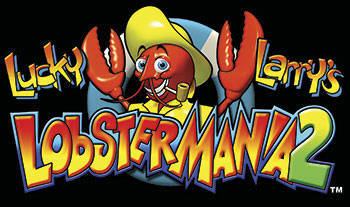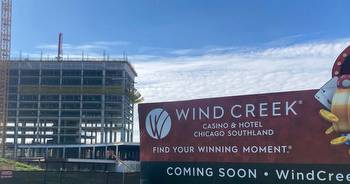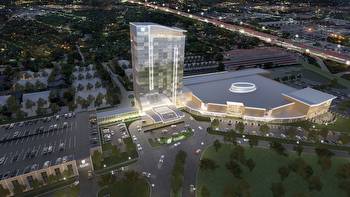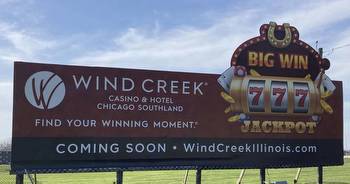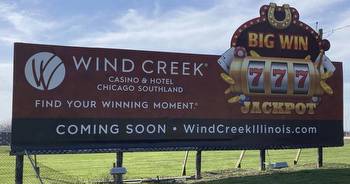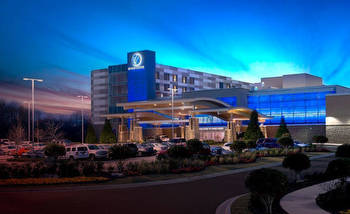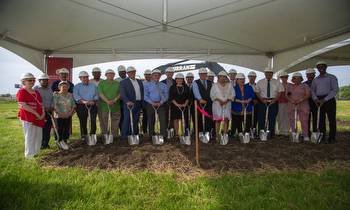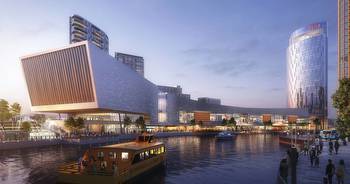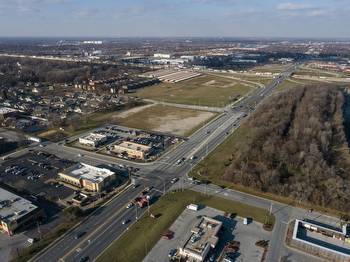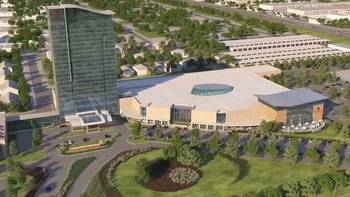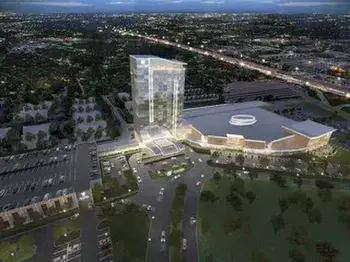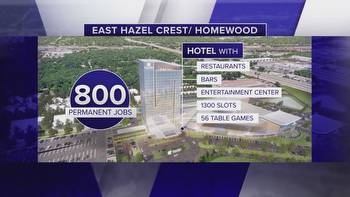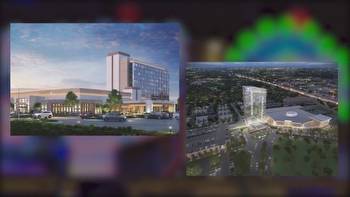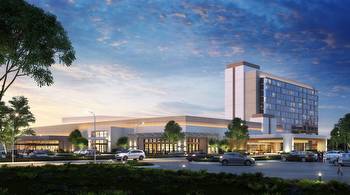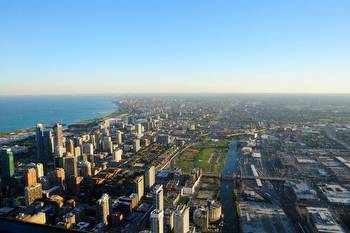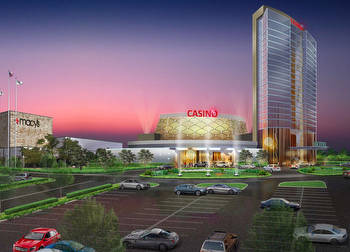Illinois Gaming Board delays decision eliminating one south suburban casino contender
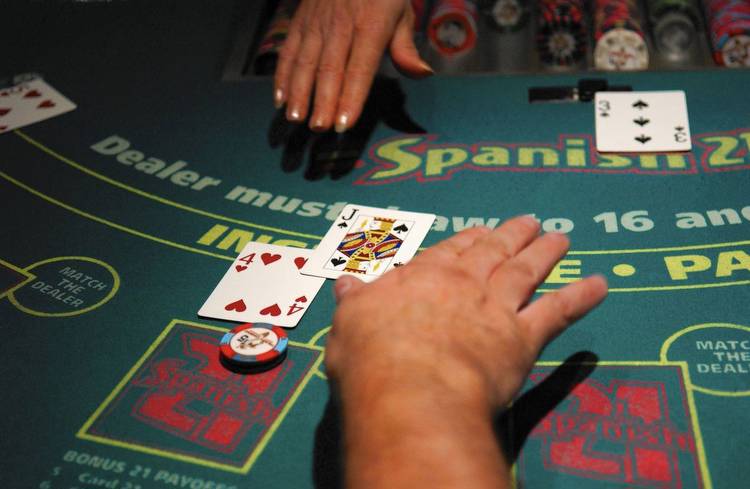
Illinois gaming regulators put off a decision Wednesday on narrowing the field of four applicants for a south suburban casino to three, after spending hours hearing presentations from the contenders.
Following a closed-door session, Marcus Fruchter, the gaming board’s administrator, said that decision could come up for a vote at the board’s Oct. 20 meeting.
Fruchter said the gaming board remains on pace to grant the license to one of the four applicants by early January.
The four proposals are for casinos in Calumet City, Lynwood, Matteson and one on the border of Homewood and East Hazel Crest.
Using professionally produced, documentary style videos, applicants presented commitments to hire businesses owned by minorities, women and veterans to build and operate their casinos, and said minorities are well represented in ownership interests of the proposed gaming facilities.
With hundreds of millions of dollars in investments, and millions of dollars potentially flowing to south suburban communities suffering from poverty and high unemployment, the applicants touted the creation of jobs and potential development that would spring up around casino sites.
Residents, business owners and elected officials appeared in the videos to talk about the jobs and economic boost a casino and related development would bring.
Each also emphasized their projects would be in the best position to not siphon off gambling revenues from existing Illinois casinos and still keep customers from venturing to gambling halls in northern Indiana and southwest Michigan.
Calumet City looks to use the struggling River Oaks shopping center, southeast of Torrence Avenue and 159th Street, just east of Interstate 94, for a 150,000-square-foot casino. The city teamed up in the $275 million project with Southland Live Casino, a partnership that includes the privately held firm Delaware North, which operates a casino in Illinois.
Southland Live said should it get the license, it would open a temporary casino within three months in the vacant Carson Pirie Scott store at River Oaks. It would have 800 slot machines and could generate $52 million a year in tax revenue, developers said.
It would take about two years to complete a permanent casino, which developers said could produce nearly $600 million in annual revenue by 2028. It would be adjacent to the shopping center, according to Southland Live.
Calumet City Mayor Thaddeus Jones said in the video a casino would return River Oaks to “the economic engine it was and will be,” with others plans for amenities such as sports fields and restaurants.
Homewood and East Hazel Crest are partnering with Wind Creek Hospitality for a 64,000-square-foot casino on a 24-acre site southwest off the interchange of Interstate 80 and Halsted Street.
The facility would sit on the border of both suburbs, and the $300 million initial phase would include an entertainment center and 21-story hotel, with a rooftop balcony offering views of Chicago’s skyline, Wind Creek representatives said Wednesday.
Wind Creek is a subsidiary of PCI Gaming Authority Inc., which manages 10 casinos and other gambling properties on behalf of the Alabama-based Poarch Band of Creek Indians.
Wind Creek representatives said they don’t plan a temporary casino, as they believe it would delay construction and not generate significant gaming revenue. Developers plan to build the casino and 252-room hotel at the same time. A second phase proposes another hotel.
Brent Pinkston, chief operating officer of Wind Creek Hospitality, said a temporary casino could leave a bad taste in the mouths of possible future customers.
“You only have one shot at making a first impression,” he told board members.
Wind Creek representatives said they plan to work with local colleges to develop training programs for casino employees.
Ho-Chunk Nation, which operates casinos in Wisconsin, is working with Lynwood on a $300 million casino and hotel development.
The plan is to build on land Ho-Chunk Nation owns just east of Illinois 394 and north of the highway’s interchange with Glenwood-Dyer Road.
The Ho-Chunk own more than 120 acres and operate a sports and entertainment center on the property, which would be retrofitted to house a temporary casino should Lynwood receive the license.
Ho-Chunk Nation’s gaming subsidiary operates six casinos in Wisconsin, including in the Wisconsin Dells, representatives said.
The permanent casino would create up to 1,100 full-time jobs, but gaming board members asked about community support for the project in light of comments made by newly elected Lynwood Mayor Jada Curry that she is not in full support of a casino.
Lynwood’s Village Board, in October 2019, adopted a resolution in support of the Ho-Chunk proposal. Curry, a trustee at the time, voted against the resolution.
Ho-Chunk representatives said they had not had an opportunity to talk with Curry about the casino proposal, but cited the prior village resolution as an indication of community support.
Matteson’s partners include Oklahoma’s Choctaw Nation, with plans for a casino on the former Lincoln Mall property, southeast of U.S. 30 and Cicero Avenue.
Matteson originally proposed a site at the northeast corner of U.S. 30 and Harlem Avenue, near the village’s border with Frankfort, but an outcry from Frankfort residents prompted the site change.
The first phase would be a 123,000-square-foot casino, with a 200-room hotel and convention center to built later, representatives said.
The redevelopment of the former Lincoln Mall site, a project called Market Square Crossing, would include small shops, restaurants and entertainment options surrounding the casino, according to the village.
The casino would be the “anchor of a planned urban renewal project,” said Rob Miller, managing member of the Matteson project.
Matteson proposes opening a temporary casino inside meeting space attached to the nearby Holiday Inn, southeast of Interstate 57 and U.S. 30, within six months should the village be approved. It would be 18 months before a permanent casino is built, according to project representatives.
The village said the permanent casino would generate 600 permanent jobs and 600 temporary construction jobs.
The Choctaw Nation operates several casinos and hotels in Oklahoma.
The Illinois General Assembly in May 2019 approved legislation expanding the number of casino licenses throughout the state from 10, including one for the south suburbs and one for Chicago.
Gambling revenue from the south suburban site will benefit dozens of communities. Under the legislation, the host community will keep 2% of adjusted gross receipts, or money wagered after winning bets are paid, while 3% will be divvied up among another 42 towns.
South suburban communities that would benefit from the revenue sharing language of the legislation include Dixmoor, Dolton, Phoenix and Robbins.
With the Homewood/East Hazel Crest project, for example, applicants estimate $3 million would flow annually to Homewood and East Hazel Crest, and another $4 million a year to the other communities.
Wednesday’s presentations came nearly two years after applicants first submitted bids along with nonrefundable $300,000 application fees. The state legislation directed the board to make a ruling a year ago, but it had the leeway to extend the review period.







